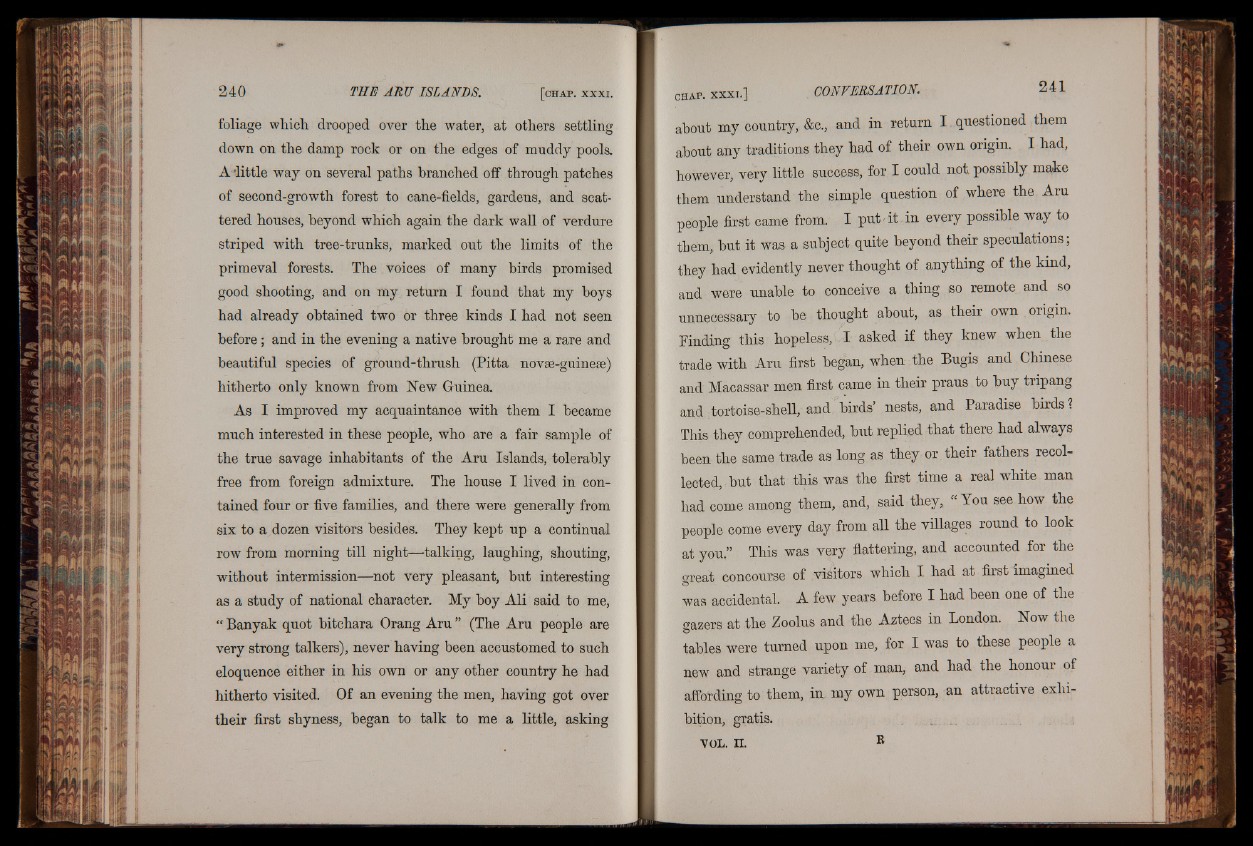
foliage which drooped over the water, at others settling
down on the damp rock or on the edges of muddy pools.
A'little way on several paths branched off through patches
of second-growth forest to cane-fields, gardens, and scattered
houses, beyond which again the dark wall of verdure
striped with tree-trunks, marked out the limits of the
primeval forests. The voices of many birds promised
good shooting, and on my, return I found that my boys
had already obtained two or three kinds I had not seen
before; and in the evening a native brought me a rare and
beautiful species of ground-thrush (Pitta novse-guinefe)
hitherto only known from Hew Guinea.
As I improved my acquaintance with them I became
much interested in these people, who are a fair sample of
the true savage inhabitants of the Aru Islands, tolerably
free from foreign admixture. The house I lived in contained
four or five families, and there were generally from
six to a dozen visitors besides. They kept up a continual
row from morning till night—talking, laughing, shouting,
without intermission—not very pleasant, but interesting
as a study of national character. My boy Ali said to me,
“ Banyak quot bitchara Orang Aru ” (The Aru people are
very strong talkers), never having been accustomed to such
eloquence either in his own or any other country he had
hitherto visited. Of an evening the men, having got over
their first shyness, began to talk to me a little, asking
about my country, &c., and in return I questioned them
about any traditions they had of their own origin. I had,
however, very little success, for I could not possibly make
them understand the simple question of where the Aru
people first came from. I put At in every possible way to
them, but it was a subject quite beyond their speculations,
they had evidently never thought of anything of the kind,
and were unable to conceive a thing so remote and so
unnecessary to be thought about, as their own origin.
Finding this hopeless, I asked if they knew when the
trade with Aru first began, when the Bugis and Chinese
and Macassar men first came in their praus to buy tnpang
and tortoise-shell, and birds’ nests, and Paradise birds?
This they comprehended, but replied that there had always
been the same trade as long as they or their fathers recollected,
but that this was the first time a real white man
had come among them, and, said they, “You see how the
people come every day from all the villages round to look
at you.” This was very flattering, and accounted for the
great concourse of visitors which I had at first imagined
was accidental. A few years, before I had been one of the
gazers at the Zoolus and the Aztecs in London. How the
tables were turned upon me, for I was to these people a
new and strange variety of man, and had the honour of
affording to them, in my own person, an attractive exhibition,
gratis.
VOL. II. R